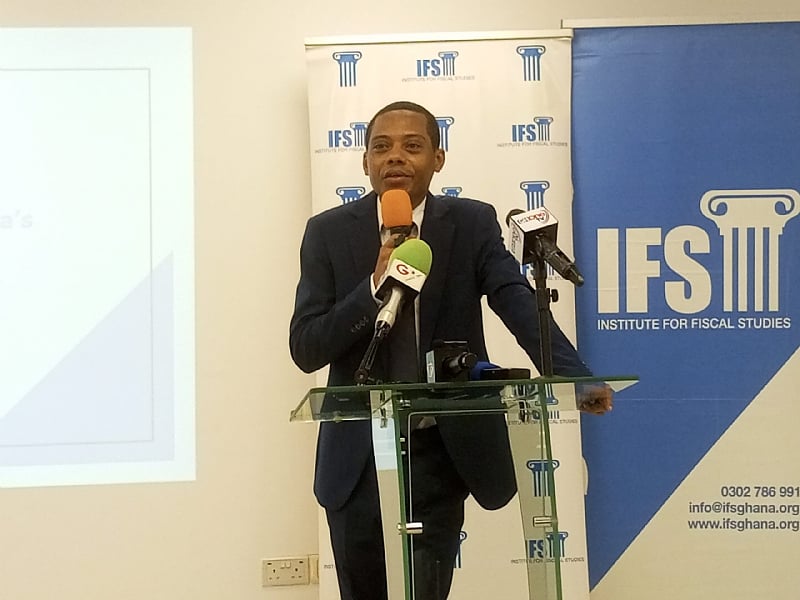The Institute of Fiscal Studies (IFS) has expressed skepticism about the Ghanaian government’s revised revenue target of GH¢229.95 billion for the year 2023, equivalent to 16.4% of GDP. This revised target, an upward adjustment from the initial projection of GH¢227.08 billion, is deemed unrealistic by the IFS given the country’s persistent revenue mobilization challenges witnessed during the first half of the year. The think tank highlights that despite signs of economic recovery and stabilization, revenue and grants underperformed by GH¢3.24 billion in the first six months of 2023. This shortfall raises significant concerns about the feasibility of achieving the ambitious upwardly revised target.
The IFS criticizes the government’s decision to maintain its revenue projections despite the first-half underperformance. The only significant new revenue measure introduced is a GH¢1 petroleum levy, projected to yield GH¢2.87 billion. The IFS argues that this measure alone is insufficient to bridge the existing revenue gap and simultaneously meet the original revenue target for the second half of the year. Achieving the overall revised target would require a substantial improvement in revenue collection during the remainder of the year, a prospect that the IFS views as unlikely given the historical context. They point out that Ghana’s revenue performance over the past eight years demonstrates a consistent inability to reach the 16% of GDP target.
The IFS further questions the government’s long-term revenue strategy, which aims to mobilize 16.4% of GDP by 2025. They argue that simply replicating past strategies, which have proven ineffective, is unlikely to yield the desired results. The think tank advocates for a fundamental reset of the country’s revenue mobilization approach. This reset should prioritize the extractive sector, which the IFS believes holds significant untapped potential.
A key recommendation from the IFS is to focus on leveraging production sharing agreements (PSAs) in the extractive sector. They estimate that effective implementation of PSAs could generate approximately US$4 billion annually for Ghana. This represents a substantial revenue stream that could significantly contribute to closing the country’s fiscal gap and supporting development objectives. The IFS emphasizes the need for a more strategic and proactive approach to managing the extractive sector to maximize its revenue potential.
The current approach to revenue mobilization, according to the IFS, appears to be overly reliant on traditional methods and lacks the innovation needed to achieve ambitious targets. They suggest that a more diversified approach incorporating innovative strategies is crucial for sustained revenue growth. This includes exploring new revenue sources, strengthening tax compliance mechanisms, and optimizing existing tax policies. The IFS stresses that a comprehensive review of the current tax system is essential to identify areas of improvement and ensure that it effectively captures the country’s economic growth.
In conclusion, the IFS expresses serious doubts about the attainability of the government’s revised revenue target. Their analysis points towards a persistent underperformance in revenue collection and a lack of robust strategies to address the challenges. The think tank calls for a fundamental rethink of the country’s revenue mobilization approach, focusing on a more strategic engagement with the extractive sector and the implementation of innovative revenue-generating mechanisms. They advocate for a shift away from traditional, often ineffective, strategies and towards a more dynamic and forward-looking approach to ensure sustainable revenue growth for Ghana. A more rigorous and proactive approach is needed, according to the IFS, to harness the country’s economic potential and achieve its fiscal objectives.














